Walter Mosley was born in California. When he was 12 years old, his family moved from South Central to a more affluent West LA neighborhood. Although racial conflicts flared throughout Los Angeles at the time, his family was non-political. He later beca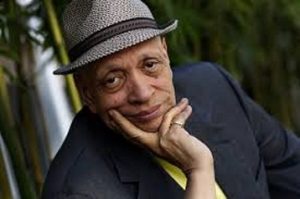 me more politicized and outspoken about racial inequality in the U.S., which continues to inform much of his fiction.
me more politicized and outspoken about racial inequality in the U.S., which continues to inform much of his fiction.
He earned a political science degree at Johnson State College, then abandoned a doctorate program in political theory and began working in computer programming. While working for Mobil Oil, and after being inspired by Alice Walker’s novel, The Color Purple, he took a writing course at New York’s City College.
He began writing at 34 and has continued ever since, having penned fifty books in different fiction genres including mystery and Afrofuturist science fiction. He has also written non-fiction and plays.
In 1990, Devil in a Blue Dress was published, and featured the iconic character, Ezekiel “Easy” Rawlins. The book received a Shamus Award and was adapted into a 1995 movie starring Denzel Washington, Jennifer Beals, Tom Sizesmore, Maurey Chaykin and Don Cheadle.
His works have been translated into 21 languages. He’s won many awards and has served on the board of directors of the National Book Awards.
You once said your writing imagination was due to ‘an emptiness in my childhood that I filled up with fantasies.’ Will you tell us more about that?
I was an only child. My mother was an only child and my father was an orphan. So, there was a lack of interaction between and among us. I was alone a lot. That being the case, I had to fill up time, so I made up stories. And I think that has stayed with me all these years.
Were your parents profound influences on you in relation to reading and storytelling?
My parents were extremely sophisticated. I was reading comic books and my father said to my mother, ‘He’s not reading. What’re we gonna do?’ My mother said, ‘The house is filled with books. You and I are always reading, so if there’s any possibility of him turning out to be a reader, he will be.’
That was the most they ever said about it. And it’s true: books were everywhere. I was looking at them, thinking about them, and I learned to revere them in certain ways.
I wasn’t told to read one book or another. My parents left it up to me to discover reading.
You once described your father as a deep thinker and storyteller, a ‘black Socrates.’ Will you elaborate a bit?
If you were poor and white, you might have claimed Socrates as an inspiration.
If you were poor and Chinese, maybe you would have said Confucius.
But if you were poor and black, there was nobody from your race you could claim.
Maybe you’d look up to someone, but that person wasn’t from your race or ethnicity.
My paternal grandfather was the only black man in New Iberia, Louisiana who could read. Everyone brought him their contracts, letters or whatever else required a written response.
My father, like his father and like Socrates, was first and foremost an educator. To me, my Dad was a ‘black Socrates.’
What inspired you to begin writing fiction?
I was in a Political Theory program at UMass Amherst. One day, I was sitting in class and listening to a revered professor of political theory—a man who studied Thucydides, the Greek historian, physician and general—and though I was really interested in the subject, I was incredibly bored by his lecture.
It was at that moment I realized I’d never be happy or truly successful as a teacher.
So I walked away from pursuing my doctorate, and went back to working in computer programming. Some years later, while still working in programming, I started to write.
You were thirty-four years old, and attended a writing course. I understand you were inspired by Alice Walker’s “The Color Purple.” What about the book inspired you?
I don’t know that I was inspired by The Color Purple, but when I read the book, I thought, ‘I could write like this.’ Not that I thought I was as good a writer as she was, but I knew I could use dialect and the black experience and make it into fiction.
I hadn’t had that realization before, even though I had read Richard Wright and other black writers.
I also read that a mentor at City College encouraged you by saying, ‘You’re Black, Jewish, with a poor upbringing: there are riches therein.’ How did that affect you?
That was Edna O’Brien. I think she’s the greatest living writer of English prose. She was teaching at City College.
Yes, she said that to me, but I already knew it. However, what Edna did do—which was much more important—one day, while reading something I had written, she said, ‘Walter, you should write a novel.’
I went, ‘Wow!’ This was Edna O’Brien, a brilliant person, who was also unbelievably beautiful. I would look at her and fall in love. And six weeks later, I’d written a novel—because Edna had told me to do it.
I don’t think she understood the impact she had on me.
Six weeks, first draft?
Yes, Gone Fishin’ was my first work of fiction.
Easy Rawlins is your most famous character. At the end of the 2007 novel “Blonde Faith,” you had him die. Or so it seemed. Will you talk about that?
I’d gotten to the end of the book. Easy was broken hearted and drunk, driving a car barefooted on the Pacific Coast Highway. He would pass cars and finally, he passed one. A truck was coming from the opposite direction and he was forced onto the shoulder. Then, the shoulder ended.
Now, I was simply writing this…I wasn’t really thinking. I was just writing. I wasn’t sure if I should have him go down the embankment. Then, I thought, ‘That’s what you wrote, you must have had a reason to write it, so leave it that way.’
And I did. I left it that he drove off the side of the mountain.
Now, it’s a first-person narrative, so obviously, he can’t be dead because in a first-person narrative, he’s telling the story to the reader. So, it’s impossible for him to be dead. But everybody else thought he was dead. That was fine with me because I didn’t know if I could write about Easy Rawlings anymore.
What made you feel you didn’t know if you could write anymore about Easy?
I couldn’t think of anything new, or anything different. Some years later, I realized the reason for that was I had been writing about my father and his world, but at that moment in time, I was entering my world. When I began writing from my own point of view, I could inform Easy from that perspective, and that’s when I wrote Little Green.
Yes, after “Blonde Faith,” you turned to writing novels about a New York-based private eye, Leonid McGill. But in 2013, you brought Easy Rawlins back in the novel “Little Green.” So, you rethought his disappearance?
Yes. I never thought of him as being dead. As I said, in the first person, he knew he’d gone off the cliff.
So where was he for six years? [Laughter]
He was nowhere.
I wasn’t writing about him for six years because I didn’t think I could. But then I realized, I’d write about him from my own vantage point.
I told myself, ‘Okay, let’s do it.’
So, I resumed writing about Easy Rawlins in Little Green, which begins a few days after the accident in which he survived going down the embankment.
There have been debates in academic literary circles about whether your work should be considered ‘Jewish’ literature, or if you should be viewed as a ‘black’ author. What are your thoughts about being thus classified, and how do you view your work?
Well, let’s talk about generations.
My mother’s generation would say, ‘He’s a Jewish writer. He’s one of us.’
Their children would say, ‘Oh, Walter’s writing stories.’
Historically, the thing about being Jewish has been assimilation. You like to think of yourself as being part of the dominant culture. For example, you identify as being German because you were a heroic soldier in World War I. You think of yourself as a good German until the day you realize the dominant culture doesn’t want you anymore.
In America, you identify as being white. You think you’re assimilated until the day you’re not wanted because you’re a Jew.
A lot of people would say, ‘He’s not a Jewish writer.’ I mean, Philip Roth wrote a novel about a black university professor having sex with one of his students, and yet he was still Philip Roth, a Jewish writer.
Bernard Malamud wrote about Roy Hobbs in The Natural, but Roy Hobbs wasn’t Jewish.
So, the idea of excluding me from being a Jewish writer and just seeing me as a black writer, is an act of racism.
So obviously, you consider yourself simply a writer.
My mother’s Jewish, that means I’m Jewish. And so, I’m Jewish, and I’m a writer…so I’m a Jewish writer.
I’m also a black writer in America.
And beyond all that, I’m a writer. Period. The fact that people argue about it is wonderful. I enjoy that. [Laughter].
It’s nice to be argued about, isn’t it?
Absolutely. [More laughter].
You once said your first love is the genre of science fiction. What about it do you love so much?
It’s hard to say. It’s like being asked what you love about your children. Or, what do you love about the ocean? But science fiction is wonderful because it opens your imagination to all kinds of possibilities. Children’s stories are really science fiction or alternative fiction of some sort. I mean, think about Jack and the Beanstalk or Alice in Wonderland or Winnie the Pooh. They all involve an alternative reality.
Also, if you’re black in America, science fiction is one way to overcome your own history. If you write, ‘In 1832, there was a black president,’ that’s science fiction. It didn’t happen; but by writing that, you’ve created an alternative history which is science fiction.
I didn’t think about that element at the time I began reading science fiction, I just enjoyed the genre.
You’ve written stage plays in addition to novels. You’ve also written screenplays. How did you learn these crafts, and how do you approach them as compared to writing novels?
I could spend a long time talking about that. I’m not sure I studied the craft that much. To me, art is an unconscious activity. People’s desire to make it conscious baffles me. I don’t know much about the craft or how to consciously write these things. I’ve been teaching screenplay writing at Sundance for twenty years. Every time I teach, I expect they won’t ask me back. And then they call and ask me to come back to teach some more. If that’s what they want, okay, I’ll do it. [Laughter]. Each genre of writing has its own avenues and its own limitations. I like playing with that. It’s true about non-fiction, too. It’s really true about all art, and especially true about poetry. I don’t think much about the craft or the means by which I write. I just write. It flows.
Speaking of poetry, David Mamet says rap music is the operative poetry of our time.
Mamet’s a brilliant guy and I really like him. Yes, rap music certainly has poetic elements in its use of language and cadence. So do pop songs. So does really good oration. It’s all over the place.
Is it true that you’ve written virtually every day since 1986?
Yeah.
You never take a day off?
Maybe if I have a plane trip, or if I’m sick. Before I came down here to meet you, I was writing.
What’s a typical writing day like for you?
I get up and I write for three hours. That’s it.
You’ve been outspoken about racism in the publishing industry. What do you think can be done about it?
The publishing industry has become more and more corporate. Everything it publishes—from children’s books to pornography—is catering to different types of readers: native Americans, so-called Hispanics, so-called black and white, and Asian people.
I think it would behoove publishers to have people from all these groups as editors—not necessarily editing just the books from their race or culture. To have a native American edit a book for, let’s say, Scandinavians, would be very interesting. I think the writers and the readers would learn something.
Art is unconscious, and so is racism. There are those people who are afraid of others whom they don’t understand. And there are people who think they are right because other people think like them. And there are people who think they’re smarter than those in another group.
One of the things I love about the Easy Rawlins character is that he sees racial issues even in their most subtle forms.
He has to deal with racism all the time. When the waitress at the diner is afraid to take his order, he has to deal with it. So, it becomes a very practical matter.
In his own mind, Easy always describes people he meets as having various shades and tones of skin color. He’s very aware of racial differences.
Yes, it’s done in very practical ways. He’ll think so-and-so has very good-looking skin. It’s white, or pink, or olive-colored, or black, or bronze, or shiny.
The idea of defining race by color is idiotic.
I don’t believe in the existence of a ‘white’ race. I mean, there are people we call white, but the differences between and among then can be startling: one person is tall and beefy, has pink skin and red hair and blue eyes, while another you’re calling white is short and thin, has ivory-toned skin, black hair, and dark brown eyes, with totally different features, and speaks a different language. What makes them the same?
I think the thing that makes them the ‘same’ was colonization. So-called white people came here and felt they had to kill the so-called red man, and enslave the so-called black men and women. So, the people who did the killing and enslaving decided they needed to have a color, too; and they became ‘white.’ If you call something white, it should be white, like the whites of your eyes, right? [Laughter]
Who are the authors you enjoy reading most these days?
They’re probably the same authors as years ago. I re-read books a lot. I reread Marquez all the time. Even though I don’t like his politics, I re-read Eliot. I read a lot of science fiction. I’m almost positive that other writers don’t influence me. I write about the world I experience.
If you could read any single novel again as though reading it for the first time, which one would it be and why?
It has to be The Stranger by Camus. It’s an extraordinary book that speaks so much to the modern world. It speaks to the issue of humanity which is dealing with our instincts and our passions.
What if anything keeps you awake at night?
Nothing. [Lots of laughter]. I think it’s because I’m old enough that I could have been dead for a long time by now. And, I live in America, and have my arms and legs. I’m in pretty good health. And as far as I’m concerned, I’ve had enough success. If there’s anything I could get upset about it pales in comparison to the troubles of people living in Mosul. It’s extraordinary to think about how lucky I am to have the life I have. Something really bad has to happen for me not to sleep.
So you don’t let ‘first world problems’ eat away at you?
I don’t let my ‘first world problems’ eat at me. I mean, 2.8 million people in America are in prison. Two million of those fall within the definition of people of color. Those people have trouble in the first world. If I was about to go to trial tomorrow for something that might send me to prison, I wouldn’t sleep tonight. [More laughter].
If you could host a dinner with any five people from history or contemporary times, living or dead, real or fictional, from any walk of life, who would they be?
I know a lot of people, some of whom are quite famous or very wealthy, and they’re much sought after. But some of these people bore me, even though they’re smart and have accomplished great things. I’m just not interested in what they have to say.
Would I want to have dinner with Abraham Lincoln? If I said ‘yes’, maybe I’d regret it: he might be boring.
I know lots of people who’ve never done anything noteworthy, and I love spending time with them. I learn from them and enjoy their company.
So, I’ll pass on hosting your dinner party, and stick with inviting my friends.
What’s coming next from Walter Mosley?
I’ve written a book—not an Easy Rawlins novel—called Down the River Unto the Sea which is coming out in about nine months. I’ve written another book I’ve worked on for years about a deconstructionist historian. It’ll be published a few months after Down the River Unto the Sea; and I’ve written a children’s book for nine or ten-year olds called The Adventures of Renny a Little Brown Mouse.
Congratulations on such a diverse and successful career. It’s been a pleasure talking with you.





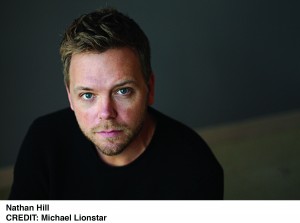
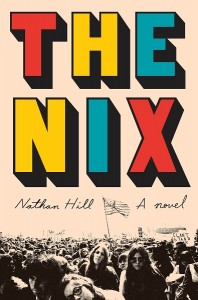
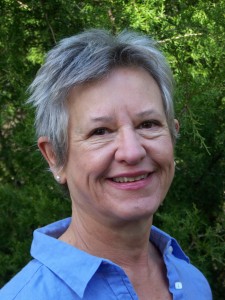
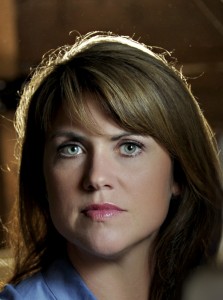 Lisa Gardner is one of the best-known names in all of thrillerdom. She’s received praise from Lee Child, Karin Slaughter, Tess Gerritsen, among many others. With more than 22 million books in print, she’s written an FBI profiler series; the Detective D.D. Warren series; and a number of standalone novels.
Lisa Gardner is one of the best-known names in all of thrillerdom. She’s received praise from Lee Child, Karin Slaughter, Tess Gerritsen, among many others. With more than 22 million books in print, she’s written an FBI profiler series; the Detective D.D. Warren series; and a number of standalone novels.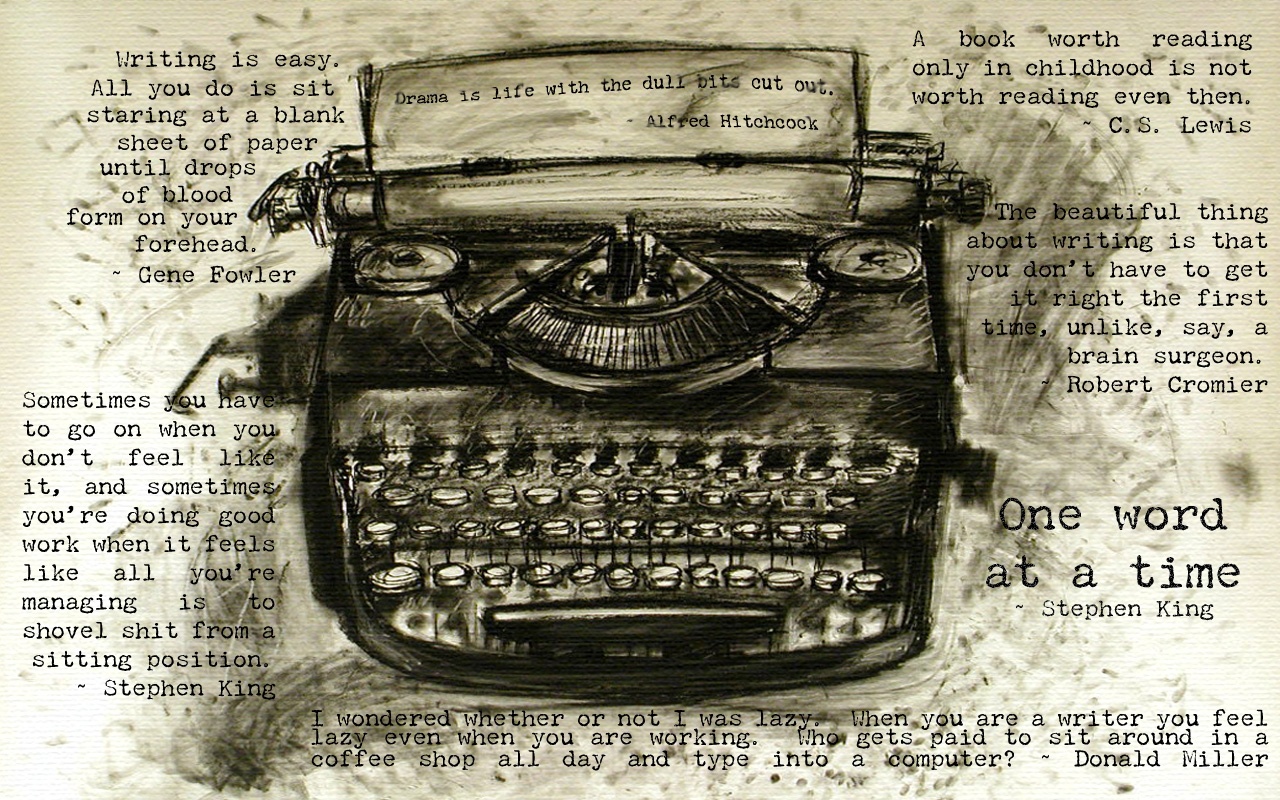
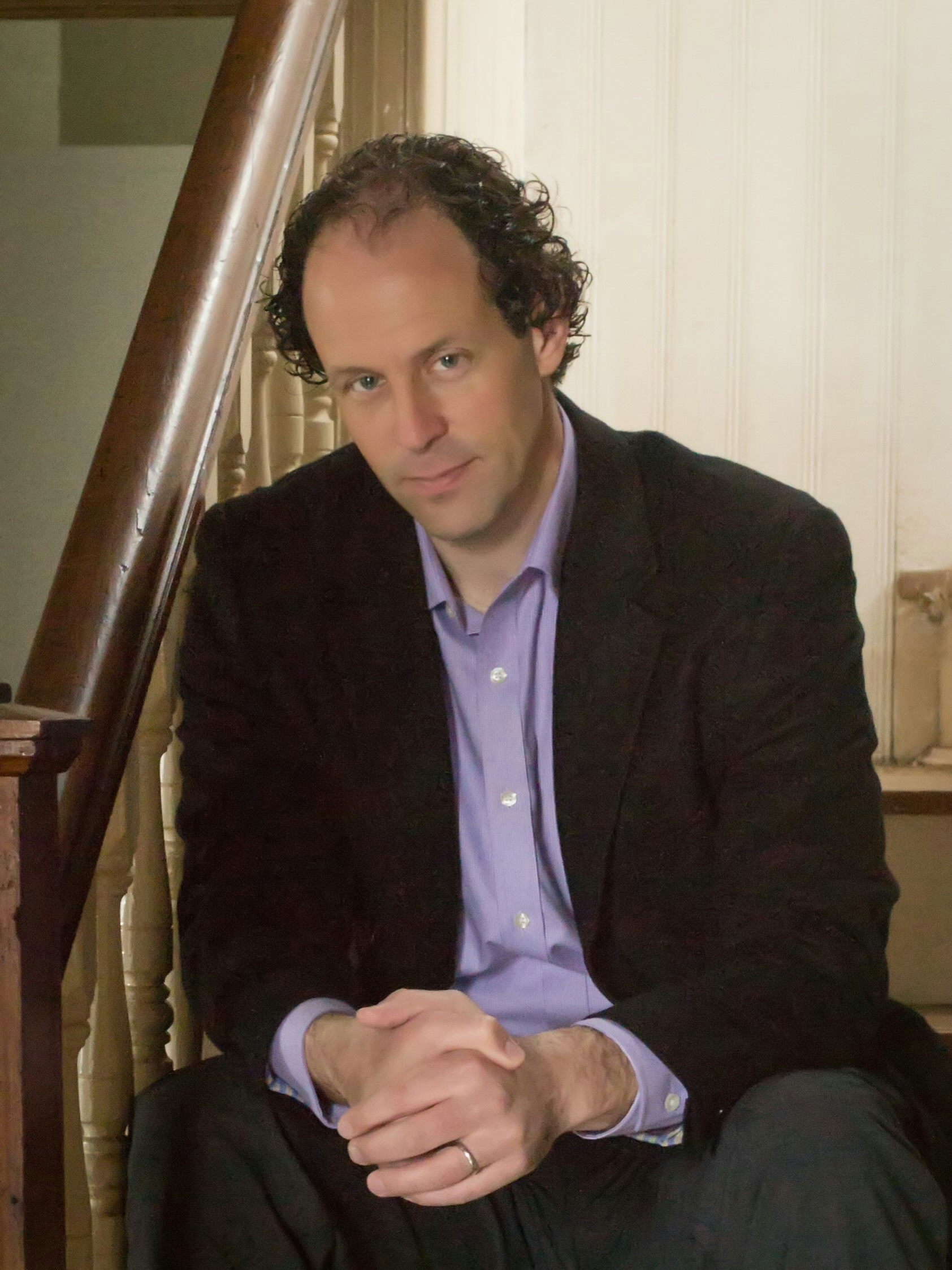 Brad Parks is the only author to have won crime fiction’s Shames, Nero, and Lefty Awards. As in his five previous novels, his protagonist, Carter Ross, is an investigative reporter for Newark’s Eagle-Examiner.
Brad Parks is the only author to have won crime fiction’s Shames, Nero, and Lefty Awards. As in his five previous novels, his protagonist, Carter Ross, is an investigative reporter for Newark’s Eagle-Examiner.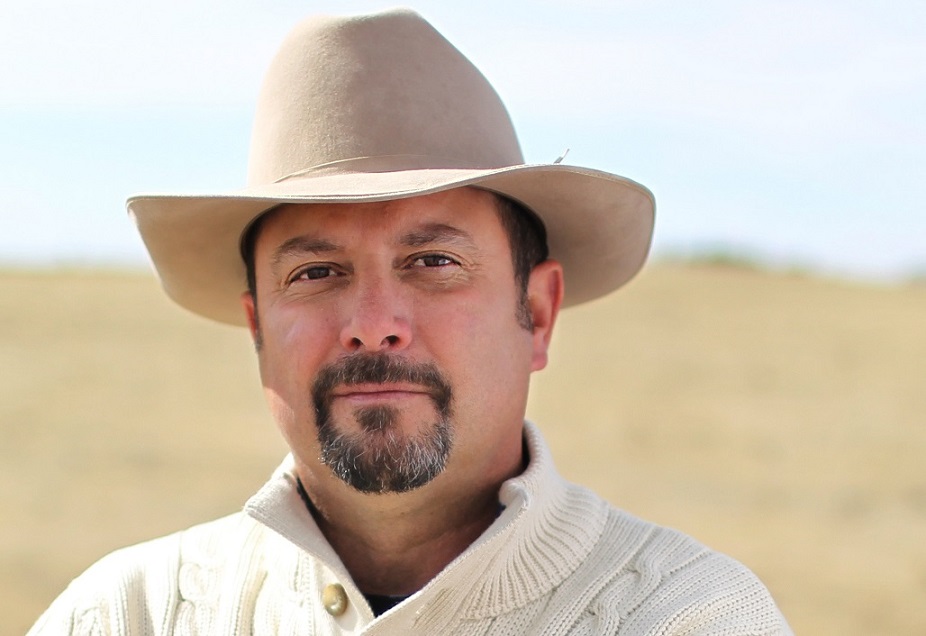 C.J. Box is the bestselling author of 16 Joe Pickett novels, four standalone novels, and a collection of short stories called Shots Fired. He’s won multiple awards including the Edgar, the Anthony, the Gumshoe, and the Barry awards. He lives with his family outside Cheyenne, Wyoming.
C.J. Box is the bestselling author of 16 Joe Pickett novels, four standalone novels, and a collection of short stories called Shots Fired. He’s won multiple awards including the Edgar, the Anthony, the Gumshoe, and the Barry awards. He lives with his family outside Cheyenne, Wyoming. Patricia Cornwell is the internationally bestselling and award-winning author of 33 books, the most famous and widely read being the 22 novels of the “Kay Scarpetta” series.
Patricia Cornwell is the internationally bestselling and award-winning author of 33 books, the most famous and widely read being the 22 novels of the “Kay Scarpetta” series. Recently, I read
Recently, I read